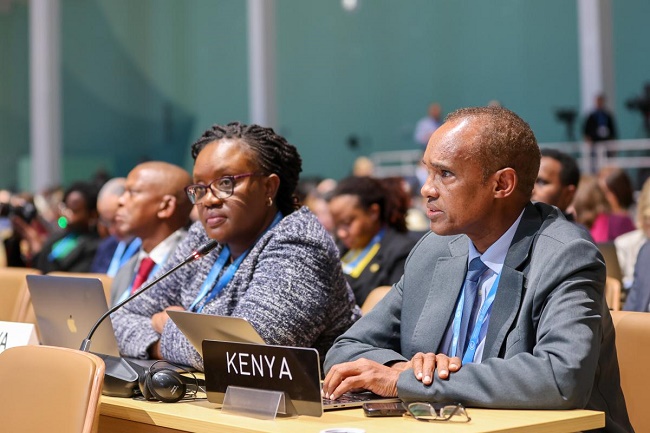In the early hours of Sunday, November 24, 2024, two days after scheduled closure of COP29, Parties finally agreed the New Collective Quantified Goal on Climate Finance (NCQG), replacing the $100 billion goal that was set and agreed in 2009.

After a frustrating additional two days beyond scheduled closure of COP29, and frantic efforts to salvage the almost collapsing talks, a compromise $300 billion climate finance deal was agreed, with India, Bolivia and Nigeria rejecting the deal after adoption.
African Group of Negotiators on Climate Change (AGN) Chair, Ali Mohamed, did not hold back the group’s frustrations during the closing plenary, labelling the deal “too little, too late, and too ambiguous in its delivery.”
“At this COP, we achieved progress in some respects, but we appear to be regressing in others,” said Ambassador Mohamed. “Let it be clear that, the agreed figure of $300 billion per annum is an inadequate amount, which has to be reviewed in 2030 and revised upward in line with needs of developing countries.”
The two main contentious issues revolved around the quantum and mode of delivery, as the obligation aspect is clear in both the Convention and the Paris Agreement, placing responsibility on developed parties to provide climate finance.
However, developing parties left Baku frustrated as this responsibility was watered down in the agreed climate finance deal – it puts obligations on all parties, “with developed country Parties taking the lead,” and includes “a wide variety of sources, public and private, bilateral and multilateral, including alternative sources.”
With such language in the text, some experts believe this effectively kills the spirit of the climate convention, which clearly places obligations on developed countries to provide climate support based on their historical and current contribution to the climate crisis.
“Africa stands here with a sense of realism and resignation. Delivery of the aims of the Convention and its Paris Agreement remain deeply uncertain. We are realistic about the journey ahead. But let us remember that these commitments are not acts of charity. They are acts of survival, shared prosperity, and solidarity. Climate finance is not a handout – it is the moral and economic imperative of our age.
“As I close, I remind us of all of the southern African concept of ‘Ubuntu’: I am because you are. When Africa loses, the world loses – its critical minerals, its biodiversity, its stability. When Africa thrives, the world thrives with it,” concluded Ambassador Mohamed in his closing statement.”
Coming into COP29, Africa had clearly outlined its priorities, top of which were a climate finance deal with a $1.3 trillion quantum and adaptation support for the over 1.4 billion Africans suffering the vagaries of the climate crisis.
“For us in Africa, adaptation means agriculture support, resilient water infrastructure, and universal health coverage for all, amidst an increased climate-induced disease burden, among other necessary development support. We are therefore not treating our development needs as a separate subject from climate adaptation, which cuts across all our development needs in key sectors,” emphasised the AGN Chair at the start of the conference.
Simon Stiell, UNFCCC Executive Secretary, said: ” This new finance goal is an insurance policy for humanity, amid worsening climate impacts hitting every country. But like any insurance policy – it only works – if premiums are paid in full, and on time. Promises must be kept, to protect billions of lives.”
COP29 President, Mukthar Babayev, said: “The Baku Finance Goal represents the best possible deal we could reach, and we have pushed the donor countries as far as possible. We have forever changed the global financial architecture and taken a significant step towards delivering the means to deliver a pathway to 1.5 degrees Celsius. The years ahead will not be easy. The science shows that the challenges will only grow. Our ability to work together will be tested. The Baku Breakthrough will help us weather the coming storms.”
